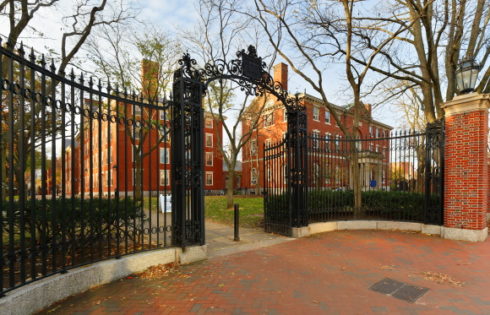
Members of North Carolina’s House of Representatives have proposed spending up to $180 million to renovate a building at North Carolina State University that has been linked to cancer-causing agents and closed since November.
The university closed Poe Hall after testing discovered polychlorinated biphenyls, or PCBs, in the structure. The situation has thrust the public institution into a spotlight of controversy and legal battles, as approximately 200 former students and employees who have cancer believe their diagnoses are linked to their time in the building.
Currently, North Carolina State University attorneys have petitioned the state’s supreme court to block independent testing of Poe Hall, a building that long housed the university’s psychology and education departments. The court this month granted a temporary stay of independent testing while it reviews the matter, the Carolina Journal reported.
PCBs are a human carcinogen commonly used in commercial and industrial products prior to being banned in 1979. Poe Hall was built in 1971.
As of June 19, WRAL, a Raleigh-based news television station that has done extensive investigations into the topic, reports they have “received more than 200 reports of cancer cases in people who worked or studied in the building.”
“Many of the people who reported illnesses to [WRAL] 5 On Your Side have expressed frustration with N.C. State leaders, saying the university was slow to act and not responsive to their concerns.”
Several top NCSU officials have not responded to emails from The College Fix seeking comment, but the institution has created a webpage dedicated to addressing concerns and answering questions.
“As we plan for building remediation and renovation, our goal remains to provide a safe and stable environment during the transition period and beyond for all impacted,” it states.
Asked to weigh in on the concerns, David O. Carpenter, a public health physician with the University at Albany School of Public Health and Department of Environmental Health Sciences, told The College Fix via email that the International Agency for Research on Cancer identifies melanoma, female breast cancer and non-Hodgkin’s lymphoma as being the best documented cancers linked to PCBs, but there are many others.
“In my judgment,” Carpenter added, “PCBs increase risk of all kinds of cancer.”
As described by NC State provost Warwick Arden in a March webinar, possible health and safety concerns regarding the presence of PCBs, lead, and asbestos in Poe Hall were first reported by an employee in August 2023 to the school’s environmental health and safety unit.
According to Arden, subsequent preliminary testing was done in the fall, finding lead and asbestos were within acceptable limits while the results of preliminary tests for PCBs in select areas of Poe Hall led Arden and NCSU Chancellor Randy Woodson to the close the building in November and order more comprehensive testing “out of an abundance of caution.”
Woodson added the university is currently working with the National Institute for Occupational Safety and Health to study the situation and is following Environmental Protection Agency guidelines.
Investigative reporting from WRAL News, however, paints a more complicated picture.
The timeline posted to WRAL’s website states NC State first became aware of the presence of “dangerous levels of PCBs on exterior caulking” in 2018 and that a former NC State employee notified the university of “multiple breast cancer cases in Poe Hall” in 2020.
Previous reporting by WRAL also indicates there were concerns about air quality in Poe Hall dating back to 2012.
Yet, according to the timeline put together by WRAL, it wasn’t until after health and safety concerns were reported to multiple government agencies including the EPA and the North Carolina Department of Labor in August 2023 that the university took action.
Darren Masier, an assistant professor of human resource management at Meredith College in Raleigh, who earned his doctorate from NCSU in 2013, told The College Fix he was diagnosed with acute myeloid leukemia last summer.
He said he chose to contact an attorney after realizing multiple former graduate assistants he knew at NC State, who, like him, spent significant amounts of time in Poe Hall, were similarly dealing with serious illnesses, he said in a mid-June telephone interview.
Skeptical of administrators’ handling of the PCB testing in Poe Hall, Masier said, “I became the petitioner for us to get in there and do our own private investigating.”
Masier told The Fix he believes officials knew about health hazards in Poe Hall for longer than they are saying publicly.
“I think they were well aware they had issues in that building and I don’t think they responded as expeditiously as they should have,” he said.
Carpenter told The Fix that, in his opinion, there are “some major problems” with the sampling done in Poe Hall thus far, criticizing technical aspects of methods, measurements, and analyses that have been performed, especially with regard to air sampling.
As for whether better testing could determine if the cancer diagnoses of Masier and others could be linked to their time in the building, Carpenter said it “may be possible but it is very difficult.”
“Cancer is a common disease, and one would have to show that the number of cancers in people working in the building is significantly greater than among people that did not.”
When asked in his interview with The Fix, which occurred prior to the state supreme court’s ruling, what he hopes to get out of his lawsuit, Masier said, “What we just wanted was to get some professionals in there to just do some studying on the caulking and the potential PCBs linked to the HVAC system, and just get the answers,” he said.
“If indeed there are some numbers that are not good, I want to notify my doctor as quickly as I can so he knows,” Masier said, “because one of the first questions he asked me last July was ‘Have you been around anything toxic?’”
“Who knows, maybe that will help my treatment or other peoples’ treatment?”
MORE: Group sex flyers get NC State welcome packets pulled
IMAGE: WRAL screenshot
Like The College Fix on Facebook / Follow us on Twitter






Please join the conversation about our stories on Facebook, Twitter, Instagram, Reddit, MeWe, Rumble, Gab, Minds and Gettr.